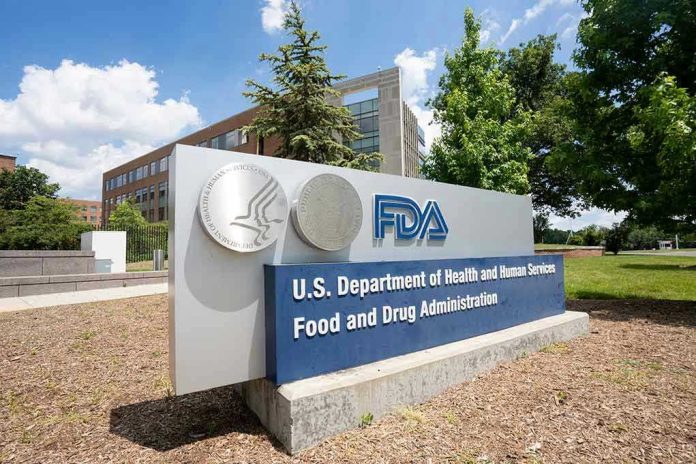
A new FDA decision signals a major shift in women’s health policy, raising questions about the balance of safety and access to menopause therapies.
At a Glance
- RFK Jr. announces FDA’s removal of warnings on menopause drugs.
- The decision marks a significant regulatory change.
- Advocates see this as a victory for women’s health.
- Concerns remain about the potential risks of hormone therapies.
RFK Jr.’s Announcement and Its Implications
On November 10, 2025, Robert F. Kennedy Jr., a notable independent presidential candidate, declared that the U.S. Food and Drug Administration (FDA) would remove a long-standing warning from hormone-based menopause drugs. This announcement, made during a live-streamed event, is framed as a historic moment for women’s health. Kennedy’s assertion is that this regulatory change ends the era of neglecting women’s health issues, addressing a long-standing concern about the accessibility and safety of hormone therapies.
The FDA’s decision follows years of advocacy and public debate, with many in the medical community arguing that the risks associated with hormone therapies were overstated for certain populations. Since the early 2000s, when a study linked these therapies to increased health risks, the FDA had imposed strict warnings. However, recent discussions and scientific evaluations have spurred a reevaluation, leading to this regulatory shift.
The Broader Context of Women’s Health
Hormone-based menopause therapies have been a focal point of women’s health since the mid-20th century. Initially celebrated for managing menopausal symptoms, their usage sharply declined after the 2002 Women’s Health Initiative study raised concerns about potential risks. Over the years, debates have persisted, with some experts suggesting that the study’s findings were not universally applicable. This context is crucial in understanding the FDA’s recent decision to remove warnings.
This change comes amid a broader societal push for gender equity in healthcare. The move is seen as aligning with contemporary scientific understanding and advocacy for women’s health rights. The FDA’s role in this shift highlights the influence of political leadership and public advocacy in shaping health policy, with RFK Jr. positioning himself as a pivotal figure in this transformation.
Potential Impacts and Reactions
The immediate effect of the FDA’s decision is increased accessibility to hormone-based menopause therapies. This may lead to a surge in prescriptions, offering relief to many menopausal women. In the long term, the decision could improve the quality of life for these women, although it necessitates continued monitoring for adverse effects. The economic implications are significant, with potential growth in the hormone therapy market and reduced healthcare costs if symptoms are better managed.
RFK Jr. Makes Blockbuster FDA Announcement – ‘The Era of Ignoring Women’s Health Is Over’ https://t.co/i2P1tMlgfk
— Rosehead (@Rosehea92496012) November 11, 2025
However, some medical professionals caution against the potential for overprescription and the underappreciation of risks for certain groups. The removal of warnings is supported by advocates who view it as long overdue, yet public health experts emphasize the need for comprehensive patient education to ensure informed decision-making. The FDA’s forthcoming guidelines will be pivotal in addressing these concerns.











